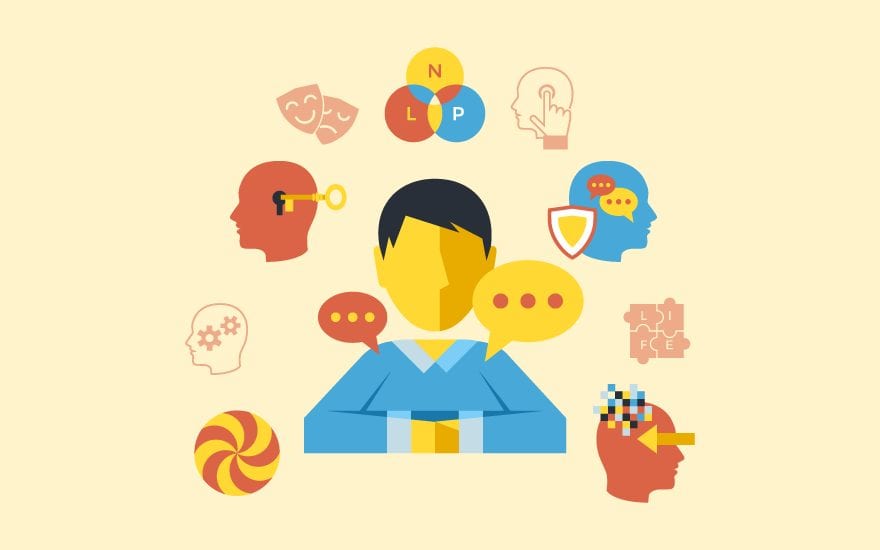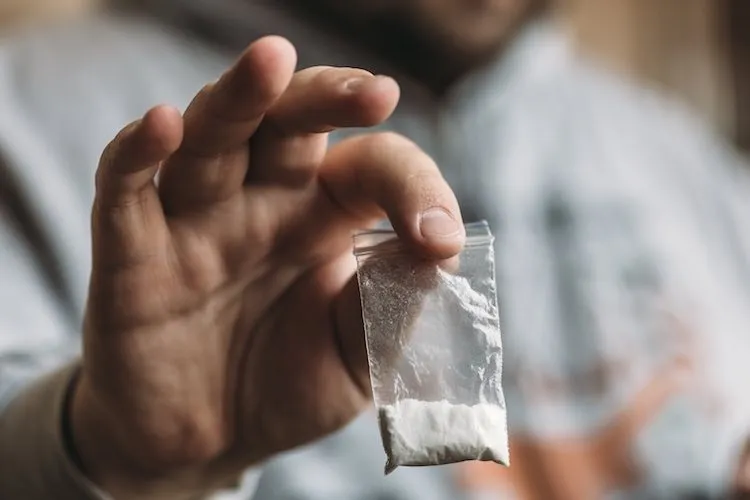Drug abuse, also known as substance abuse, arises when an individual uses drugs in ways that can be detrimental to themselves or others. This can lead to various problems, affecting physical, social, and psychological well-being. Some substances, like alcohol, amphetamines, and opioids, often get linked with such abuse. Two primary theories emerge regarding the origins: one points to genetics, while the other emphasizes learned behavior from peers.
Notably, individuals under the influence of drugs might engage in criminal or anti-social activities. It’s important to note that substance abuse extends beyond the drug itself; it can profoundly impact an individual’s life, causing shifts in their personality and potentially leading to lasting health complications. Recognizing substance abuse is pivotal, and seeking assistance is key to fostering a healthier life.
The Nature of Addiction
Addiction as a Chronic Brain Disorder
Addiction is often regarded as a lasting brain disorder, going beyond mere habits; it’s a condition that profoundly impacts the way our brains operate. When a person becomes addicted to substances like drugs, alcohol, or even certain behaviors like gambling, it triggers shifts in their brain chemistry.
This drives them to crave the substance or activity, even if it’s causing harm to their well-being, relationships, or responsibilities. This can result in a harmful cycle where the person requires increasing amounts of the substance to experience the same effect. It’s as if the brain’s reward system undergoes a rewiring, making it challenging for them to break free, even if they genuinely wish to do so.
Complex Biological and Social Determinants
It can happen for many reasons, including things in our bodies and the world around us. Some people might be more likely to have issues because of their genes or how their brain works. The way we grow up and the people we’re around can also affect whether we face these problems. It’s like a puzzle where different pieces fit together to cause these challenges.
Differentiating Substance and Non-Substance Addictions
Addictions can actually be about different things. Some are related to substances like drugs or alcohol, while others are connected to activities like playing games or using the internet excessively. Both types of addictions can create problems in a person’s life. Substance addictions involve becoming dependent on something physical, like a drug that alters how your body and mind feel. On the other hand, non-substance addictions are more about behaviors or actions that become tough to control, even if they start causing problems. It’s important to understand that addictions can take various forms and have different effects on people’s lives.
Understanding Substance Abuse
Types of Substances with Addiction Potential
Certain substances carry the risk of leading to addiction, which means people can become strongly dependent on them and struggle to quit using them. These substances often have an impact on how our brain functions, creating a growing desire to keep using them.
Some common types of substances with addictive potential include alcohol, which can alter our thoughts and behaviors; tobacco, found in cigarettes, which can be incredibly tough to give up; and drugs like cocaine and heroin, which can cause severe health problems and have a powerful hold on those who use them. Being informed about these substances and their dangers is crucial for making well-informed decisions about our well-being.
Activation of the Brain’s Reward Center
When we do things that bring us joy, like enjoying our favorite food or spending time with loved ones, a special part of our brain known as the reward center becomes active. This creates a feeling of happiness and encourages us to do those things again. However, certain substances such as drugs can cause an intense activation of this reward center.
They release a large amount of a chemical called dopamine in the brain, creating a strong and immediate feeling of pleasure. As time goes on, our brain can start depending on these substances to feel good, leading to addiction. It’s as if our brain starts believing it needs these substances to be happy, making it tough to stop using them.
Gradation of Substance Use Disorders
Drug abuse can vary in intensity, sort of like a scale from mild to severe. At the milder end, someone might just use a substance occasionally, without much negative impact on their life. But as use becomes more frequent and starts causing problems in different areas of life, the disorder can become more serious. This might mean difficulties in school, work, or relationships. It’s like the disorder gets stronger and more challenging to control.
The severe end of the scale is when substance use takes over a person’s life, making it really tough for them to quit even if they want to. So, substance use disorders come in different levels of severity, and recognizing where someone falls on this scale can help guide treatment and support.
Behavioral Addictions

Scope of Behavioral Addictions
Behavioral addictions go beyond substances and involve repetitive behaviors that can result in negative consequences. These actions become so compelling that they’re difficult to manage, even if they lead to problems.
Examples include gambling, excessive gaming, shopping, or constantly using the internet. These activities might start as enjoyable pastimes but can transform into habits that impact a person’s life, causing issues in relationships, work, or well-being. Similar to substance addictions, the brain’s reward system plays a role, making these behaviors challenging to break free from. Understanding the realm of behavioral addictions helps us identify when certain actions might be taking over and prompts us to seek assistance when necessary.
Impact on Mental, Social, and Physical Health
Mental Health Impact: Drug abuse often goes hand in hand with mental health challenges. Constantly seeking and using the addictive substance or engaging in the addictive behavior can lead to heightened stress and anxiety. The fear of withdrawal and the inability to control the addiction can contribute to feelings of helplessness, leading to a cycle of negative emotions. Over time, it can also exacerbate mental health conditions like depression, making it even more challenging to break free from the cycle.
Social Health Impact: Addiction can strain relationships and social connections. As the focus shifts towards satisfying the addiction, individuals may become distant from family and friends. Trust can erode, and conflicts may arise due to the addictive behavior’s impact on responsibilities and commitments. Social isolation can worsen feelings of loneliness and exacerbate mental health issues. The secrecy often associated with addiction can lead to feelings of shame, further isolating individuals from seeking help and support.
Physical Health Impact: Substances and addictive behaviors can have severe physical consequences. For instance, substances like drugs and alcohol can damage organs, such as the liver, heart, and brain. The risk of overdose or other acute health issues also increases. Behavioral addictions, such as excessive gambling or internet use, can lead to neglect of physical health, with individuals skipping exercise, proper nutrition, and regular medical check-ups. Over time, this neglect can contribute to a decline in overall well-being.
The Impact of Drug Abuse

Negative Consequences of Addiction
- Strained relationships with family and friends due to preoccupation with addiction.
- Health problems resulting from substance abuse or neglecting physical well-being.
- Decline in academic or work performance, leading to difficulties in meeting responsibilities.
- Financial troubles as money is diverted to support the addiction.
- Legal issues that may arise, especially if the addictive behavior is illegal.
- Overall impact on a person’s health, relationships, and quality of life.
- Isolation and withdrawal from social activities and hobbies.
- Increased risk of accidents and injuries due to impaired judgment and coordination.
- Mental health challenges, including anxiety, depression, and other mood disorders.
- Diminished self-esteem and feelings of guilt or shame.
- Neglect of personal hygiene and self-care.
- Disruption of daily routines and responsibilities.
- Loss of employment or educational opportunities.
- Involvement in risky behaviors to sustain the addiction.
- Worsening of pre-existing health conditions.
- Struggle to maintain a stable and fulfilling life.
These consequences highlight the profound impact that addiction can have on various aspects of a person’s life.
The Economic Burden of Substance Misuse
Substance misuse doesn’t just impact individuals; it also places a significant economic burden on societies. The costs come from various directions: healthcare expenses for treating addiction-related health problems, reduced productivity due to absenteeism or decreased performance at work, and the pressure on social services like law enforcement and rehabilitation programs.
Additionally, families often bear the brunt as they struggle to support their loved ones grappling with substance misuse. This economic strain can divert resources that could be used for more constructive purposes, affecting both individuals and the broader community.
Treating Drug Abuse
Comprehensive Treatment Approach
A comprehensive treatment approach for substance misuse involves addressing all aspects of an individual’s well-being. It goes beyond just stopping the use of substances and focuses on the physical, mental, and social aspects.
This approach may include medical treatments to manage withdrawal symptoms, therapy to address the underlying causes of addiction, support groups for building a strong network, and lifestyle changes to promote overall health. By considering the person as a whole and offering a range of strategies, this approach increases the chances of successful recovery and helps individuals regain control of their lives.
- Assessment and Evaluation: A thorough evaluation of the individual’s physical and mental health, as well as their substance use history, is conducted to determine the most appropriate treatment plan.
- Medical Detoxification: If needed, a supervised medical detox helps manage withdrawal symptoms and ensures a safe transition to sobriety.
- Behavioral Therapy: Various therapy techniques, such as cognitive-behavioral therapy (CBT) and motivational interviewing, are used to address the psychological aspects of addiction and develop healthier coping mechanisms.
- Medication-Assisted Treatment (MAT): Medications may be prescribed to reduce cravings and withdrawal symptoms, particularly for opioid or alcohol dependence.
- Support Groups: Participation in support groups like Alcoholics Anonymous (AA) or Narcotics Anonymous (NA) provides a sense of community and encouragement from others who have faced similar challenges.
- Family Involvement: Family therapy helps improve communication and understanding among family members, providing a supportive environment for recovery.
- Holistic Approaches: Incorporating holistic practices such as yoga, meditation, and art therapy can promote overall well-being and help manage stress.
- Dual Diagnosis Treatment: Addressing co-existing mental health disorders alongside substance misuse ensures comprehensive care.
- Relapse Prevention: Learning strategies to recognize triggers and develop coping skills to prevent relapse is a crucial part of the treatment process.
- Continuing Care: After the initial treatment phase, ongoing support through outpatient therapy, counseling, and follow-up appointments helps maintain recovery.
A comprehensive approach recognizes that addiction affects various aspects of an individual’s life and aims to provide a well-rounded strategy for achieving and maintaining sobriety.
Seeking Help and Taking Action

Recognizing Signs of Addiction
Identifying signs of addiction involves observing alterations in behavior and physical well-being. Individuals grappling with addiction may become more isolated, disregard their obligations, or exhibit reduced enthusiasm for once-enjoyed hobbies. Mood fluctuations, significant fluctuations in weight, and sleep disturbances could also be noticeable. Frequent strong urges for the substance and unsuccessful endeavors to decrease usage or quit are prevalent indicators. Recognizing these signs promptly is crucial, enabling us to provide assistance and support to aid individuals in accessing the necessary help.
Overcoming Stigma and Shame
Overcoming stigma and shame associated with addiction is essential for seeking help and healing. Many people facing addiction often feel judged or isolated due to societal misconceptions. It’s important to understand that addiction is a medical condition, not a personal failing. By fostering empathy, education, and open conversations, we can create an environment where individuals feel comfortable seeking treatment without fear of judgment. This shift in mindset helps individuals realize that seeking support is a sign of strength and courage, leading to better outcomes in their recovery journey.
Accessing Professional Assistance
Accessing professional assistance is a crucial step for those dealing with addiction. Trained professionals, such as doctors, counselors, and therapists, are equipped to provide the right guidance and support. They can help individuals understand their condition, develop personalized treatment plans, and offer strategies for coping with cravings and triggers. Seeking professional help is a proactive way to address addiction and work towards recovery in a safe and effective manner.
Conclusion
Embracing a Path to Recovery
Embracing a path to recovery involves making positive changes and committing to a healthier lifestyle. It’s about taking small steps every day to overcome challenges and build a better future. This journey often includes seeking support from loved ones, participating in therapy or counseling, adopting healthy habits, and finding activities that bring joy and purpose. Recovery is a process that requires patience and determination, but with the right mindset and a strong support network, it’s possible to regain control, rebuild relationships, and create a fulfilling life free from the grip of addiction.
The Role of Medical Professionals in Overcoming Drug Abuse
Medical professionals play a crucial role in helping individuals overcome drug abuse. They provide expert guidance, personalized treatment plans, and medical interventions to address both the physical and mental aspects of addiction. Doctors and therapists assess the individual’s health, offer detoxification when necessary, and offer therapies that teach coping strategies and life skills. With their support, individuals can gradually reduce drug use, manage cravings, and work towards a healthier and drug-free life. Medical professionals offer hope, guidance, and the necessary tools for a successful recovery journey.
- Is Vaping Harmful? The Real Risks You Need to Know (2025 Update) - May 20, 2025
- How to Choose the Right Rehab Center: 5 Critical Things to Know - May 1, 2025
- How to Prevent Child Drug Use: Every Parent Should Know - April 27, 2025